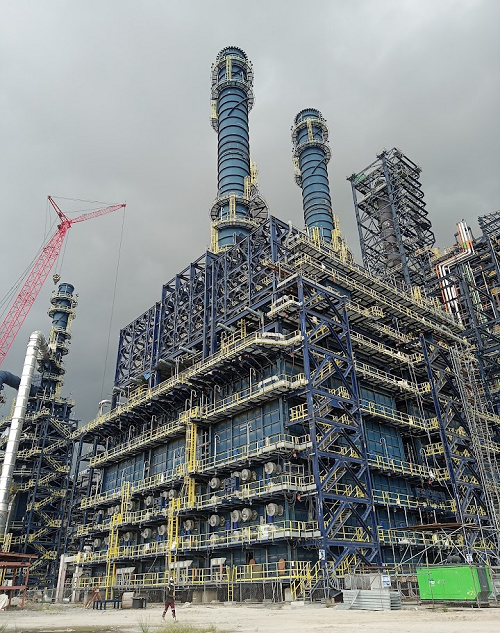Alhaji Aliko Dangote, President, Dangote Group, has said the coming on stream of the Dangote Petroleum Refinery would expose Nigeria’s midstream and downstream sectors to the international markets.
Dangote said the refinery being constructed in Ibeju-Lekki, Lagos would guarantee availability of high quality environmentally compliant products in Nigeria, regional markets in West Africa, Southern Africa and inter-continental markets.
A statement issued by Mr Tony Chiejina, Director, Corporate Communications Department, Dangote Group on Sunday, said he spoke at the 2022 Nigerian Content Midstream and Downstream Oil and Gas Summit which held recently in Lagos.
The statement said Dangote was represented by Mr Babajide Soyode, Technical Consultant, Dangote Industries Ltd.
He said the 650,000bpd refinery would promote competition of local refining in Africa by encouraging existing large refineries to upscale, which would result in surplus products for exports.
“Dangote Petroleum Refinery will guarantee adequate fuels production for domestic consumption and availability of excess products for export which will help to stabilise our domestic currency.
“It will lead to upgrading and expansion of Nigerian National Petroleum Company Ltd. refineries and promotion of prospects of Nigeria’s transformation to a regional refining hub,” Dangote said.
He emphasised the need for the Federal Government to invest more on quality infrastructure to reduce importation of refinery equipment that would ordinarily be sourced in Nigeria.
Dangote noted that the development of specific, sustainable equipment manufacturing and services should be the focus of the Nigerian Content Development and Monitoring Board and the Federal Government.
“Funding of a project should be to ensure that substantial part of the product plant must be of Nigerian origin; the same applies to goods and services.
“Government should ensure a single digit tax regime to encourage investment in the downstream sector,” he added.
Also, the Executive Secretary, NCDMB, Mr Simbi Wabote, reiterated the government’s target to increase domestic refining capacity to 1.4 million barrels per day in the next five years.
Wabote said this was being done by rehabilitating the existing four national refineries and providing strategic support for setting up private-owned Greenfield and modular refineries in the country.
“Combined refining capacity of more than 1.4mbpd is expected from these focus areas within the next five years.
“About 400,000bpd is expected from the rehabilitation of NNPC refineries in Port Harcourt, Warri, and Kaduna using target performance of not less than 90 per cent of nameplate capacity.
“The greenfield element of the roadmap covers the 650,000bpd Dangote Refinery in Lagos and the 200,000bpd BUA Refinery in Akwa Ibom,” said Wabote.
On his part, the Chief Executive Officer, Nigerian Midstream and Downstream Petroleum Regulatory Authority (NMDPRA), Mr Farouk Ahmed, said there were huge opportunities in the oil and gas value chain.
Ahmed, represented by Mr Francis Ogaree, Executive Director, Hydrocarbon Processing Plants, Installations and Transportation Infrastructure, NMDPRA, said the authority would continue to enable business in the sector.
He said the enactment of the Petroleum Industry Act (PIA) had introduced a governance framework for the industry with clear delineation of roles between regulation and profit-centric business units.
Ahmed noted that the Act contained fiscal incentives to attract investment in gas development and local refining.


Comment here